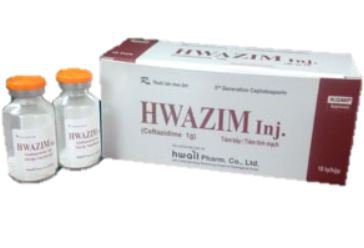What are the symptoms of a cold?
The article is professionally consulted by Master, Doctor Nguyen Huy Nhat - Department of Medical Examination & Internal Medicine - Vinmec Danang International General Hospital.
Colds, allergic rhinitis, and flu share many of the same symptoms, such as a runny nose, cough, and sore throat. So what are the symptoms of a cold and what are the signs to distinguish it from the flu or allergic rhinitis?
1. Cold symptoms
The signs and symptoms of a cold can vary from person to person. In general, a cold usually starts with a sore throat, and before that, you may also experience the following symptoms:
Stuffy nose Can't smell scents Sneezing Runny nose Watery eyes Headache Sore throat Cough; Swollen lymph nodes. Systemic symptoms
Fatigue Chills Body aches Fever Fever Chest discomfort Difficulty breathing deeply
Stuffy nose Can't smell scents Sneezing Runny nose Watery eyes Headache Sore throat Cough; Swollen lymph nodes. Systemic symptoms
Fatigue Chills Body aches Fever Fever Chest discomfort Difficulty breathing deeply
2. Distinguishing a cold from allergies and the flu
2.1. Colds Answering the question "What's the fever?", doctors said that people with colds are often not accompanied by fever symptoms. If so, this is most likely a sign of the flu or a bacterial infection. During the first few days of illness, a cold and runny nose will have a clear and liquid discharge, but then gradually become thicker and cloudy (yellow). or green). You may also have a cold, sore throat, a mild cough that usually lasts into the 2nd week of a cold. Cold symptoms usually begin 1-3 days after infection, rarely come on suddenly and will Lasts for about 3-7 days. After this time, even though the symptoms are no longer as intense as before, you will still feel tired and irritable for at least another week. The most contagious period is during the first 3 days of illness, but the risk of transmission will continue through the first week.

Cảm lạnh, cảm cúm và dị ứng là các bệnh lý khác nhau nhưng lại có một số triệu chứng tương đồng nên mọi người dễ nhầm lẫn.
2.2. Allergies Sometimes you can mistake a cold with a runny nose for an allergy. If symptoms start quickly and end in 1
- 2 weeks, it's most likely not an allergy. Allergies happen when your immune system is overworked to protect you against germs. Your body overreacts to things like dust or pollen. Then chemicals like histamine are also released. This causes your nasal cavities to swell, leading to a runny nose, coughing, and sneezing.
Allergies are not contagious, but some people can run them in families.
2.3. Colds and flu Taking your temperature is the way to tell the difference between a cold and the flu. A mild case of the flu usually has cold-like symptoms, but a cold is rarely a malaria cold or a fever higher than 38°C (about 101°F). In addition to fever, the flu also causes body aches and headaches, and is more tired than a cold.
3. When to see a doctor?

Nếu trẻ dưới 2 tuổi sốt kéo dài hơn một ngày thì bạn cần cho trẻ đến gặp bác sĩ để được thăm khám và điều trị
Colds are not usually dangerous to everyone, except in infants. Symptoms will resolve on their own without special treatment. But when you get sick, a cold can lower your body's resistance, making you more susceptible to bacterial infections.
See a doctor if your cold symptoms are severe and show no signs of abating. Throat and ear exams, as well as listening to the lungs, can be done in the clinic. Your doctor may also take throat swabs with a long cotton swab to test you for an infection that requires antibiotic treatment.
See a doctor if you have a cold and are accompanied by the following symptoms:
Ear pain Pain around the nose and eyes (sinus area) for more than a week Cold and fever above 38.8°C, for infants < 3 months is 38°C Fever lasts more than 1 day (in children < 2 years) or more than 3 days (in children 2 years) Cough with phlegm for more than a week Shortness of breath Symptoms worsen or persist for more than 2 weeks Cold cold nausea Difficulty swallowing Severe cold sore throat Pain or tightness in the chest or abdomen Stiff neck Sensitivity to light. If you cough up thick, dark mucus, cough that doesn't stop after a few weeks, or have a fever, you may have a bacterial infection. In this case, you should see a doctor to find out how to treat the virus. In addition, the following people with colds should also see a doctor as soon as possible:
Pregnant or breastfeeding Babies or young children Colds symptoms get worse after the third day. Because a cold can trigger an asthma attack, people with the condition should see their doctor to see if their treatment plan needs to be changed.
Current flu vaccines only help prevent flu, not colds. Therefore, the best way to avoid catching a cold is to regularly wash your hands with warm water and soap, do not share personal items with someone who has a cold, break the habit of touching your eyes or nose and lastly keep reasonable weight, healthy body to be ready to fight the virus that causes disease.
Vinmec International General Hospital is one of the hospitals that not only ensures professional quality with a team of leading medical doctors, modern equipment and technology, but also stands out for its examination and consultation services. comprehensive and professional medical consultation and treatment; civilized, polite, safe and sterile medical examination and treatment space.
Doctor Nguyen Huy Nhat has many years of experience in the field of respiratory disease treatment at Hue Central Hospital, Hoan My General Hospital, .. before being a doctor of General Internal Medicine Department of General Hospital. Vinmec Da Nang International
Customers can directly go to Vinmec Health system nationwide to visit or contact the hotline here for support.
Articles refer to sources: Mayoclinic.org, Webmd.com, Healthline.com, Nhs.uk
See a doctor if your cold symptoms are severe and show no signs of abating. Throat and ear exams, as well as listening to the lungs, can be done in the clinic. Your doctor may also take throat swabs with a long cotton swab to test you for an infection that requires antibiotic treatment.
See a doctor if you have a cold and are accompanied by the following symptoms:
Ear pain Pain around the nose and eyes (sinus area) for more than a week Cold and fever above 38.8°C, for infants < 3 months is 38°C Fever lasts more than 1 day (in children < 2 years) or more than 3 days (in children 2 years) Cough with phlegm for more than a week Shortness of breath Symptoms worsen or persist for more than 2 weeks Cold cold nausea Difficulty swallowing Severe cold sore throat Pain or tightness in the chest or abdomen Stiff neck Sensitivity to light. If you cough up thick, dark mucus, cough that doesn't stop after a few weeks, or have a fever, you may have a bacterial infection. In this case, you should see a doctor to find out how to treat the virus. In addition, the following people with colds should also see a doctor as soon as possible:
Pregnant or breastfeeding Babies or young children Colds symptoms get worse after the third day. Because a cold can trigger an asthma attack, people with the condition should see their doctor to see if their treatment plan needs to be changed.
Current flu vaccines only help prevent flu, not colds. Therefore, the best way to avoid catching a cold is to regularly wash your hands with warm water and soap, do not share personal items with someone who has a cold, break the habit of touching your eyes or nose and lastly keep reasonable weight, healthy body to be ready to fight the virus that causes disease.
Vinmec International General Hospital is one of the hospitals that not only ensures professional quality with a team of leading medical doctors, modern equipment and technology, but also stands out for its examination and consultation services. comprehensive and professional medical consultation and treatment; civilized, polite, safe and sterile medical examination and treatment space.
Doctor Nguyen Huy Nhat has many years of experience in the field of respiratory disease treatment at Hue Central Hospital, Hoan My General Hospital, .. before being a doctor of General Internal Medicine Department of General Hospital. Vinmec Da Nang International
Customers can directly go to Vinmec Health system nationwide to visit or contact the hotline here for support.
Articles refer to sources: Mayoclinic.org, Webmd.com, Healthline.com, Nhs.uk






